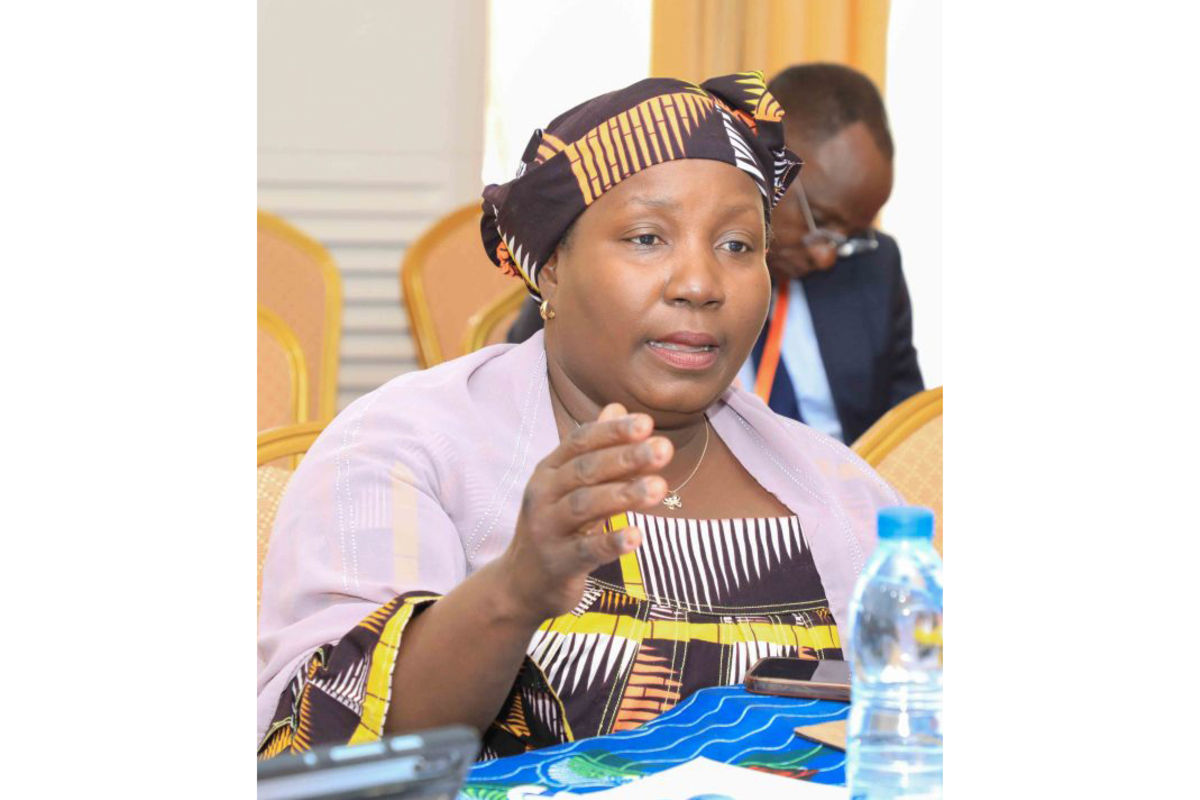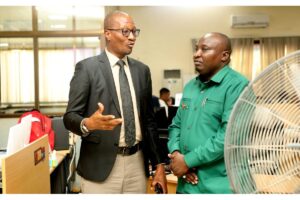
Dar es Salaam. Alipojitosa kuwania ubunge, Sophia Mwakagenda anasema moja ya neno ambalo hawezi kulisahau ni namna baadhi ya watu walivyomshambulia binafsi na si katika hoja alizokuwa akitoa kama mgombea kwenye majukwaa ya kisiasa.
Anasema ilitengenezwa kampeni watu wakihamasishana wasimchague kwa madai kwamba ana nyonyo moja, wakimaanisha titi.
“Niliwauliza kwani bungeni nakwenda kunyonyesha? jibu likawa hapana, hata hivyo sikurudi nyuma kwa maneno yao, niliwambia wanipime kwa uwajibikaji na utendaji na si mwili wangu,” anasema Mwakagenda ambaye kwenye uchaguzi wa 2020 aligombea Rungwe kwa tiketi ya Chadema na kupata kura zaidi ya 30,000.
Mwakagenda ni miongoni mwa wanasiasa wengi wanawake waliokutana na changamoto kadha wa kadha kwa sababu ya uanamke wao, lakini hawakurudi nyuma.
Katibu Mkuu wa UDP, Saumu Rashid anasema jamii ndiyo inapaswa kubadilika kuhusu udhalilishaji wa wanawake wanaoingia kwenye siasa.
Akitolea mfano alioutaja kuwa ni mfano hai, anasema mwanamke ambaye hajaolewa na mwanaume ambaye hajao wakikutana kwenye majukwaa ya kisiasa kila mmoja anagombea, mwanamke ataonekana hafai.
“Huyu mwanamke atapewa majina mengi na maneno ya udhalilishaji wakati yule mwanaume jamii itamuona ni mpambanaji, hali hii inavunja moyo na kuwarudisha wanawake wengi wenye uwezo nyuma kujitosa kugombea.
Saumu anasema japo changamoto za kisiasa kwa wanawake nchini zinapungua, bado jamii inapaswa kubadilika na kuwa na mapokeo chanya pale mwanamke anapogombea nafasi mbalimbali za uongozi. “Japo kwa kiasi fulani imebadilika, viongozi wa juu wa vyama vya kisiasa wanawake wapo kwa wingi, kuna tija, vilevile wanawake walioopo madaraka wanaofanya vizuri, kumewatia moyo wengine na kuona inawezekana,” anasema.
Saumu anasema pia amsha amsha ya wanaharakati katika kupaza sauti, imekuwa ni chachu ya mabadiliko na kuonyesha wanawake wanaweza.
“Hivi sasa kuna wagombea Urais wanawake, haya ni matunda ya mikutano ya Beijing, wanawake tumepambana kutafuta usawa, japo si kwa asilimia mia moja, lakini matunda yanaonekana,” anasema. Saumu anasema bado kuna changamoto ya kuaminika kwa wanawake na kuingia kwenye nafasi za juu akitolea mfano majimboni.
“Mfano utakuta kwenye jimbo kuna mgombea mwanamke na mwanaume, kutokana na itikadi na mifumo yetu, huo labda wanaona akigombea mwanamke hana rasilimali ya kutosha au anaweza asishinde, hivyo kwa fikra hizo wanamuengua,” anasema.
Anasema wapo wanawake pia ni waoga kutokana na mfumo dume uliokuwepo, hivyo hata akiambiwa agombee, yeye mwenyewe anajiona hatoshi wakati uwezo huo tunaomtizama tunauona ndani yake. “Kikubwa ni kuendelea dumisha utulivu na kuonyesha uthubutu ili kuwachochea wanawake wengi kuingia kwenye siasa, zinapotokea changamoto ndogo ndogo wanawake wengi wanarudi nyuma,” anasema.
Simulizi ya Mwakagenda
Katika mahojiano na Mwananchi yaliyofanyika hivi karibuni, Mwakagenda mbunge mwakilishi wanawake mkoa wa Mbeya anasema wanawake wa Tanzania wanaponzwa na mfumo dume. Akijitolea mfano yeye, anasema alipojitosa kwenye siasa, wapo waliomdhihaki na kusema asichaguliwe. “Walitumia lugha ngumu, walisema Msimchague Mwakagenda ana nyonyo moja! Kwa kuwa Nami nilikuwa jasiri, sikuyumbishwa na maneno yao, niliwauliza kwani huko Bungeni nakwenda kunyonyesha?. “Tunapaswa tushindane kwa hoja na sera, sio kwa maneno ya kum-attack mtu, yote hiyo ni kwa sababu ya mfumo dume, japo kadri siku zinavyosonga unakwenda unabadilika. “Unabadilishwa na sisi wanawake tuliopo kwenye siasa na wale waliotutangulia ambao walifanya vizuri na kuthibitisha uwezo na nguvu ya mwanamke akipata nafasi,” anasema.
Mwakagenda anasema alipogombe jimbo la Rungwe mwaka 2020, alionywa kwamba haijawahi kutokea jimbo hilo likawa na mgombea mwanamke. “Nilisema naweza, nilipambana na wanaume saba kwenye kura za maoni nikawashinda, nikasimama kuiwakilisha Chadema kwenye uchaguzi mkuu na kupata kura elfu 37. “
Anasema mgombea mwanamke ukijiwakilisha kwa hoja, achilia mbali mfumo dume uliopo, watu watakuamini na kukuchagua.
“Watu wanaishi kwa kuona, wakiona mbunge au diwani unawajibika, watakuamini, ishu ni je unajenga hoja? hapa sio 50 kwa 50 bali quality. “Wapo wanawake wanauwezo wa kusimama na kujenga hoja kwa jamii, wanaume hawafui dafu,” anasema.
Wanawake na uongozi
Akizungumzia uongozi, Mwakagenda anasema kwa miongo zaidi ya mitatu wanawake walikuwa wakipambana kutafuta uongozi.
“Baada ya muda sasa tuna viongozi tena wajuu katika ngazi za uamuzi, wanatuwakilisha vizuri na hata waliopita wametuwakilisha vizuri, Bungeni tulianza na Anne Makinda, sasa Dk Tulia Ackson ni Rais wa IPU.
“Zanzibar sasa ina Katibu mkuu kiongozi mwanamke (Zena Said) anafanya vizuri, tuna Rais mwanamke, alikuwa ni makamu wa Rais, aliaminika na amefanya vizuri
“Tunajua nchi za Kiafrika nyingi zina mifumo dume, lakini kwa walichokifanya viongozi wanawake hadi sasa, hao wanaume watasema alipita mwanamke fulani, alifanya moja mbili tatu, tunaamini uongozi ni taasisi, anayesimamia akiwa imara anaiendeleza taasisi,” anasema.
Dorothy Semu wa ACT afunguka
Mwenyekiti wa Chama cha ACT Wazalendo, Dorothy Semu anasema maneno ya ubaguzi kwa wanawake yapo, japo hayapaswi kuwarudisha nyuma. “Unapoingika kutaka mamlaka, maana yake ni kutaka kuongoza watu kwa kubadilisha maisha yao iwe kwa uzuri au kwa ubaya.
“Ukiingia kwenye sasa uwe tayari kukubaliana na changamoto zote na kuamua lipi ulichukue na lipi uachane nalo, na namna unavyoweza kusimama jukwaani usidhalilishwe,” amesema. Anasema imezoeleka katika majukwaa ya kisiasa, akijitokeza mwanaume watu wanampokea na kumsikiliza, lakini ikitokea ni mwanamke atapigiwa miluzi na vitu kama hivyo. Ninachoweza kuwasisitiza wanawake wenzangu, ikitokea hali hiyo, waitumie kama fursa wasirudi nyuma kwa kuwa mwanamke ukisimama kwenye majukwaa ya kisiasa unaangaliwa Macho matatu. Hata ikitokea umesimama jukwaani, anza kutafuta kueleweka kwa jamii, kupokea kila neno, liwe zuri lichukue na baya achana nalo huku ukijua haitakuwa rahisi, jifunze kujikaza na kukabiliana na changamoto,” anasema.
Semu hakutofautiana na watangulizi wake naye akieleza kuwepo kwa tofauti kubwa kwenye siasa ya zamani kwa wanawake na sasa.
“Mikutano ya Beijing na namna kazi inavyofanyika kwa wanawake waliopewa fursa, inadhihirisha tunaweza,” amesema.
Anasema matamanio ya wanawake wengi ni kutaka kuona idadi ya ikiongezeka kwenye nafasi za uamuzi.
Source: mwananchi.co.tz












